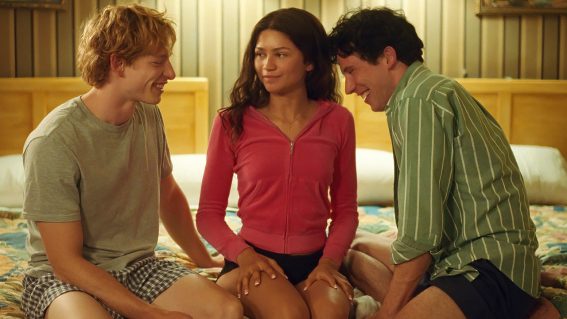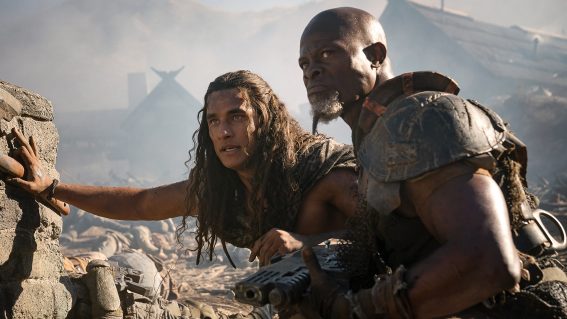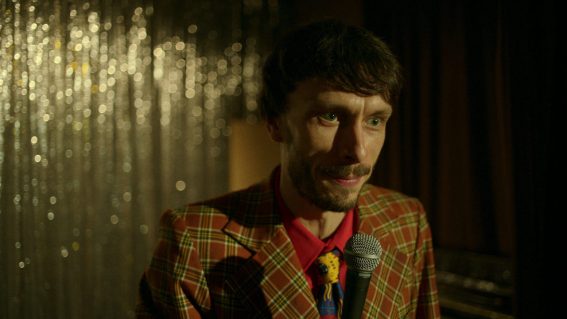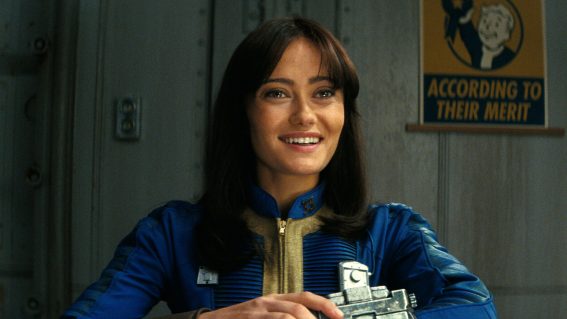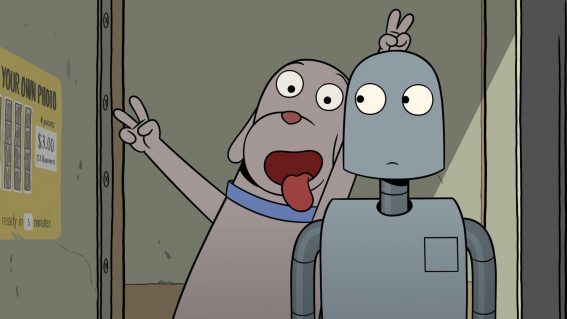There’s no endgame in the high-stakes cyberchess of The Undeclared War
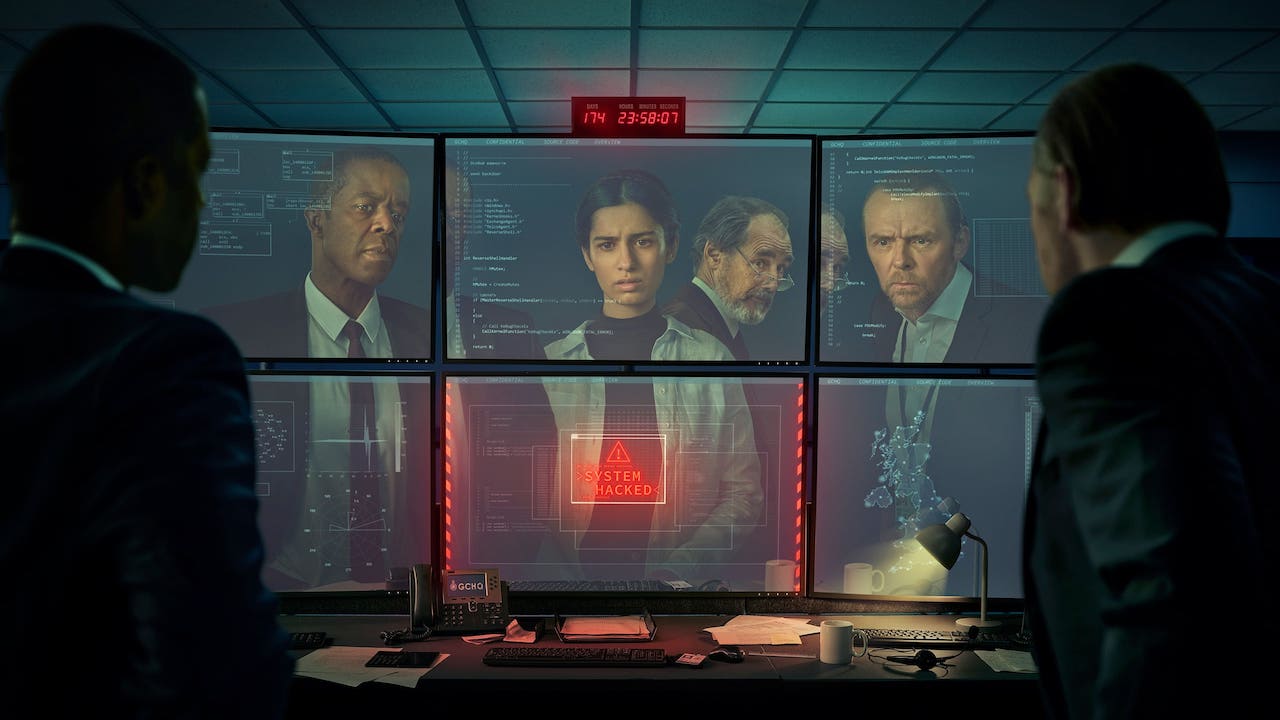
Beginning with a dramatic cyber-attack on the UK’s internet security, The Undeclared War doesn’t hack it as a compelling thriller series to critic Clarisse Loughrey.
She speeds by, a toolkit slung low around her waist. Across the beach, through a pale-coloured door—and suddenly, we’ve entered a school gymnasium. Her eyes dart across the room, anxious but determined. She’s looking for anything that seems at odds with its surroundings. What’s going on? Is she Inception-ing someone, caught in the dream within the dream? Or is she trapped in the world’s most elaborate escape room?
In seven-time BAFTA winner Peter Kosminsky’s Channel 4 drama The Undeclared War, this is just what hacking looks like, reimagined as an action escapade that plays out entirely within the protagonist’s mind. No longer must we deign to look upon sweaty nerds in basements—now Hannah Khalique-Brown’s glamorously clean-cut Saara can scarper along rooftops like she’s auditioning to be the next James Bond.
She’s a work experience intern at the UK Government Communications Headquarters (GCHQ), who happens to start on the very same day a cyberattack knocks out 55% of the country’s internet provision. The year is 2024, and a man named Andrew Makinde (Adrian Lester) has ousted Boris Johnson as Conservative leader and Prime Minister (and no, the show deserves zero kudos for predicting the obvious).
Saara, with her nifty mind palace approach to basic code, manages to spot a second piece of malware hidden in all the chaos. Her superiors, including Simon Pegg’s Danny, offer their begrudging respect even as she humiliates them in front of the PM’s cabinet.
Watching full-blown cyber warfare play out, even in the hypothetical, will always feel make me feel skin-crawlingly queasy. It’s the bogeyman that lives right below the surface, knowing that direct intervention wouldn’t even be necessary to send an entire nation into a state of crisis—only a few minor manipulations of the data, here and there. In The Undeclared War, the Russians don’t even need to hack an election to tarnish the UK’s democracy.
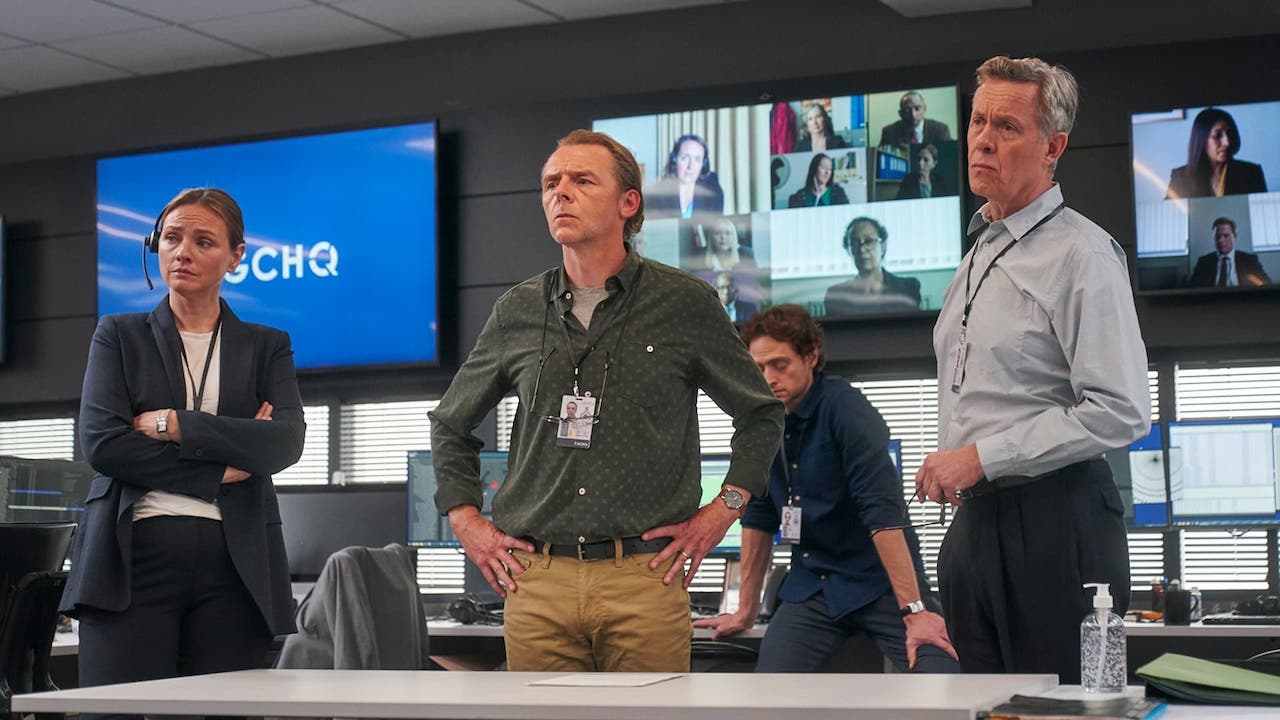
“I don’t admire them. I respect them as a worthy adversary,” a GCHQ staffer remarks at one point. That seems to sum up Kosminsky’s perspective on the topic—because, really, there’s nothing beyond the quiet, undulating fear. There’s no real context about why these things might happen, what spurred them on. Life and death are treated as a high-stakes chess game. The Undeclared War offers a strong argument that there’s a difference between compelling and good when it comes to TV drama. The series ticks away nicely, scene to scene, drawing you deeper into the rabbit hole. But there’s no real endgame here, and nothing beyond the initial fright—no insight, no sincerity, no moral backbone.
Saara is brilliant but naive. She’s told that she trusts too easily, and sees too much good in people. Kosminsky routinely holds her up as a kind of heroic ideal, which seems somewhat short-sighted for a drama set in a place where people largely spend their days intruding on people’s basic rights to privacy. A little cynicism could come in handy there.
There’s no need necessarily to minimise the material threats of cyber warfare through excessive hand-wringing over the ethics of what the GCHQ do, in practice, but there’s something particularly lazy about how The Undeclared War throws out a few lines about how the good guys might not always be good guys and leaves it that. It feels merely like a bit of pre-emptive defence so that the show can continue to parade its protagonist around on her golden throne.
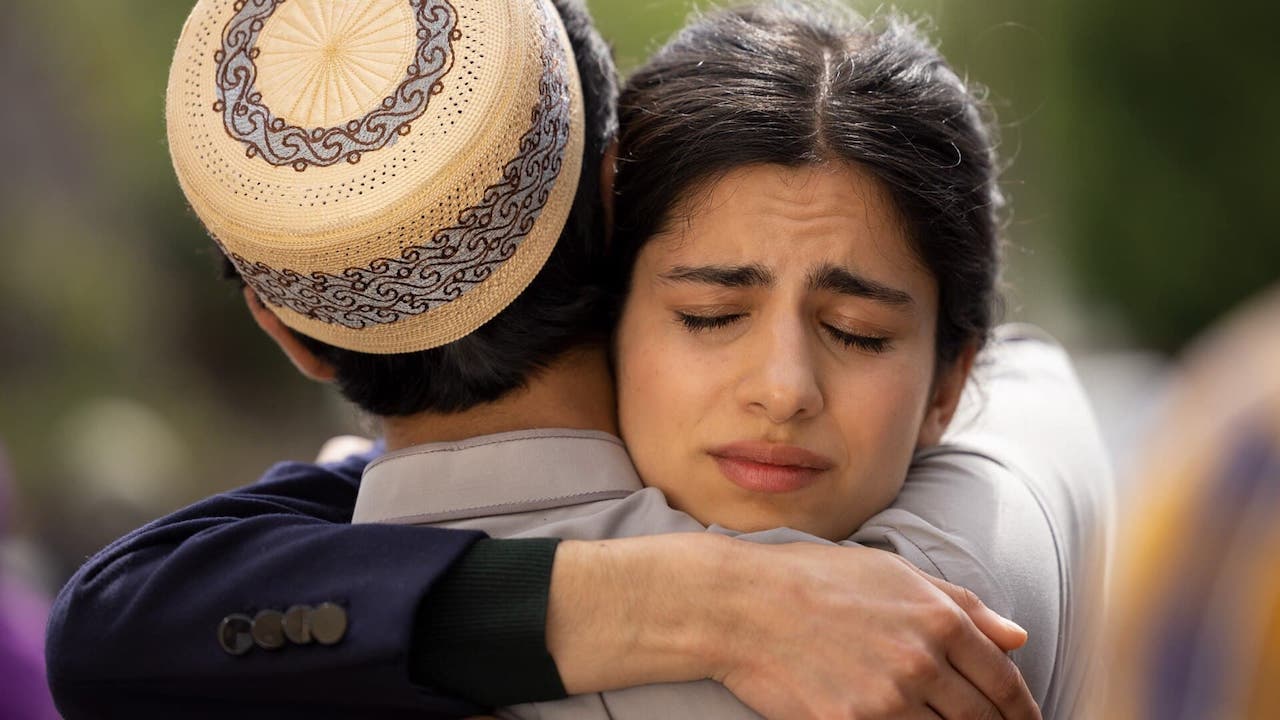
“They’re spies. Who do you think they’re spying on?” Saara’s brother (Gavi Singh Chera) warns her. He’s the rare, self-reflective voice of concern that no one ever actually has to listen to. The public, on either side of the political spectrum, are a braying mob that spit at and jostle Saara as she tries to get in and out of her office. Ultimately, The Undeclared War treats competency, not morality, as the greatest virtue a character can have. People become narrative tools—and that’s never more apparent than in Saara’s autistic colleague Gabriel (Alfie Friedman), who exists purely so that he can solve a puzzle somewhere down the line, not because his presence is treated as worthy in itself.
Mark Rylance plays a quiet, doddering GHCQ veteran—the Yoda of hackers—who spends the first half of the series pushed so far into the perimeters of the narrative that it instantly gives away his role later on. The part feels almost too easy for Rylance. And that’s true of Pegg, too, who repeats the techie-type mannerisms he’s been honing in blockbusters like Mission: Impossible and Star Trek but without any of the charisma or goofiness that actually makes him compelling as an actor.
It’s not that the performances aren’t good here. Or that The Undeclared War isn’t perfectly watchable. But you have to wonder what the point of toying around with such palpable “what ifs” is if Kosminsky is so reluctant to engage with the reality of here and now.




